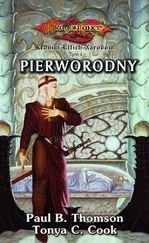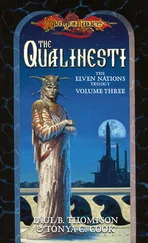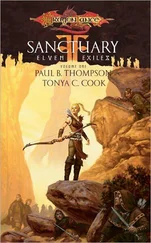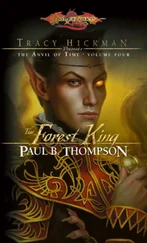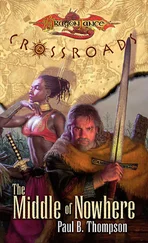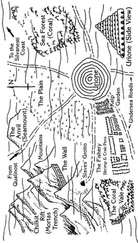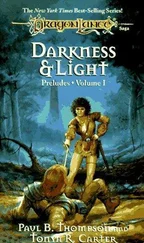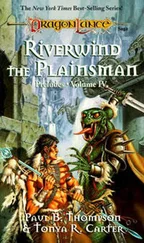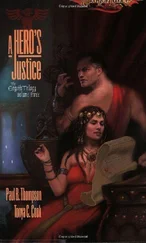“Stand aside,” be commanded.
The ghosts reacted not at all, only stood silent and immobile. He started forward again. The effect was stronger and sent him stumbling backward, hissing in pain.
The line of spirits extended as far as he could see to left and right. He could not go around them. His sword passed through the ghosts without hindrance. He sheathed it again, frustrated.
“I must get through,” he said, and charged.
The shock hurled him to the ground and left him badly dazed, although only for a moment. When his head cleared, he no longer lay on the ground. He was being carried. The spectral figures were far more substantial than when he’d first seen them. Four had lifted him, and the others streamed ahead and behind. Their progress was silent as the sunlight.
Half-formed legs passed through the grass without shifting it at all. The ghosts were insubstantial as smoke, yet their grips on him were solid enough.
The bizarre procession passed between standing stones, their white surfaces washed golden by the morning sun. Robien craned his head up to see forward. Thus far, he’d felt only bemusement. A hunter of long experience, he sensed no menace in the creatures—a great and aching sadness but no menace. When he saw where they were taking him, bemusement vanished and he tried to fight.
A white stone monolith hovered above the ground. Twenty feet in length, it floated as though anchored in the air. Beneath it, a hole gaped. A crowd of ghosts stood around the hole, their empty eyes fixed on his approach. His limbs had gone numb and he had no strength. Attempts to shout met with the same lack of success.
Without a single word spoken, the ghosts dropped him into the hole. He fell eight or nine feet then hit bottom hard. His head swam but he had no trouble seeing the monolith descend, sealing him into the cold, black ground.
* * * * *
For all its evocative name, the Stair of Distant Vision was a great disappointment to Favaronas. The view was fine but hardly the revelation he had expected.
The Stair itself was a sizable tableland cut into the side of Mount Rakaris, semicircular in shape, a hundred yards wide at its outer edge and sixty yards deep at its apex. The payers covering its surface were set in alternating courses of dark blue slate and creamy feldspar. Ten-foot obelisks rose up on its left and right edges. Those also alternated between dark basalt and alabaster. Additional obelisks dotted its surface, and Favaronas saw no obvious pattern to their arrangement.
From that vantage point, Inath-Wakenti resembled a long, wide bowl, bound on all sides by steep mountains. The regularity of its boundaries suggested the work of unnatural forces. The edge between the valley floor and the mountains was perfectly defined. Here and there, time and erosion had softened the line, but for the most part, the boundary looked as if it had been drawn by a god’s hand. The monoliths poked up among the trees and brush, their shape and stark whiteness reminding the archivist of tombstones.
A huge circular feature in the center of the valley puzzled Favaronas. He mistook it for a lake, but Faeterus said it was a huge disk made of wedges of white granite. The sorcerer called it the Tympanum meaning “drum”. What its purpose was, he would not say.
Exhaustion claimed Faeterus and Favaronas immediately after their arrival. Unfortunately Faeterus didn’t rest long. He kicked Favaronas awake only an hour or so after sunrise then set him to collecting various items with no explanation of their purpose. As Favaronas gathered loose stones and long tree branches, he watched his captor.
Seemingly from nowhere (for he carried no baggage), Faeterus produced a surveyor’s transit and a slender tripod. He set it up, carefully aligning it with the far-off Tympanum. Then he moved from spot to spot, making notes on a piece of parchment with a small charcoal stick. He continued for so long that Favaronas, having gathered the required amount of stones and branches, settled himself out of the way and slept.
Thankfully, Faeterus had no immediate need of him, and be was able to rest for several hours before the sorcerer woke him again. When Faeterus did rouse him, the sorcerer sounded almost genial.
“Stand up,” he said. “Behold a wonder no other living soul has seen in four thousand years!”
Obediently, Favaronas got to his feet. The sun was low over the western peaks, the brilliant disk suspended between a thick layer of clouds above and the gray mountains below. Its light gave the valley a deep golden sheen. Shielding his eyes against the glare of the low sun, Favaronas could see the Tympaflum in the valley’s heart glowing with reflected sunlight. A pretty sight to be sure, but surely not what the sorcerer had worked so hard to witness. Yet Faeterus stood transfixed. Perhaps only mages could see whatever it was that—
Favaronas gasped.
As the sun descended further, the monoliths throughout Inath-Wakenti began to shine vividly red. The thousands of stone blocks blazed like a mosaic of fire. The sun sank further, and the reflected glory became so intense that Favaronas was forced to put a hand over his eyes and view the scene through gaps in his fingers. His squinted eyes teared up, bringing on the final revelation.
When the individual points of crimson light blurred together, they formed an image. Not a picture, not writing, but some sort of gigantic hieroglyphic symbol. He could not see it very well. Looking at the array of shining monoliths was like trying to stare directly at the noonday sun. But he had an impression of a complex interweaving of wavy lines and single points. Oddly enough, it reminded him of Silvanesti musical notation but far removed from that ancient art.
The effect lasted only a few seconds. The sun continued its downward journey, and the blazing hieroglyph faded, leaving only a forest of faintly glowing stones. The line of twilight encroached on the valley floor, slowly submerging the monoliths in shadow.
“Amazing,” Favaronas breathed. “Does this occur every year on this date?”
The sorcerer flicked a contemptuous look at him. “Barring clouds, it occurs at every sunset, but it is visible only from this exact point in the valley.”
That seemed unlikely to Favaronas, knowing what he did about the movement of celestial bodies during the course of a year, but Faeterus’s next words explained the discrepancy: magic was at work.
“The glory of the sign,” the sorcerer said, “is not a natural occurrence, and no mortal mind can retain its detail. I must make an impression of it when it appears. It is the key to my quest.”
The apparition’s words echoed in Favaronas’s memory:
Seize the key before the door opens.
Faeterus gave him new instructions. He wanted a small fire kindled at a particular spot on the Stair. Favaronas scurried away to gather tinder. He made several trips, dumping fistfuls of dry leaves and twigs by a waist-high block of dark blue basalt. The block had a shallow depression in its top. While Favaronas fetched and carried, Faeterus produced tiny flasks and small suede bags from inside his ponderous robes. These he arranged atop the stone block, then added a large, shiny coin and a small trinket on a chain. Favaronas managed to pass close enough to identify the coin as a Khurish begon, a silver piece whose name meant “loaf of bread.” The trinket and chain carried the black patina of tarnish, and the archivist deduced it must be silver too. it resembled a four-footed animal, perhaps a cat.
When Favaronas had the fire burning, Faeterus ordered him to find water. Favaronas’s stomach chose that moment to offer a loud grumble. He couldn’t remember the last time he’d eaten.
Читать дальше

